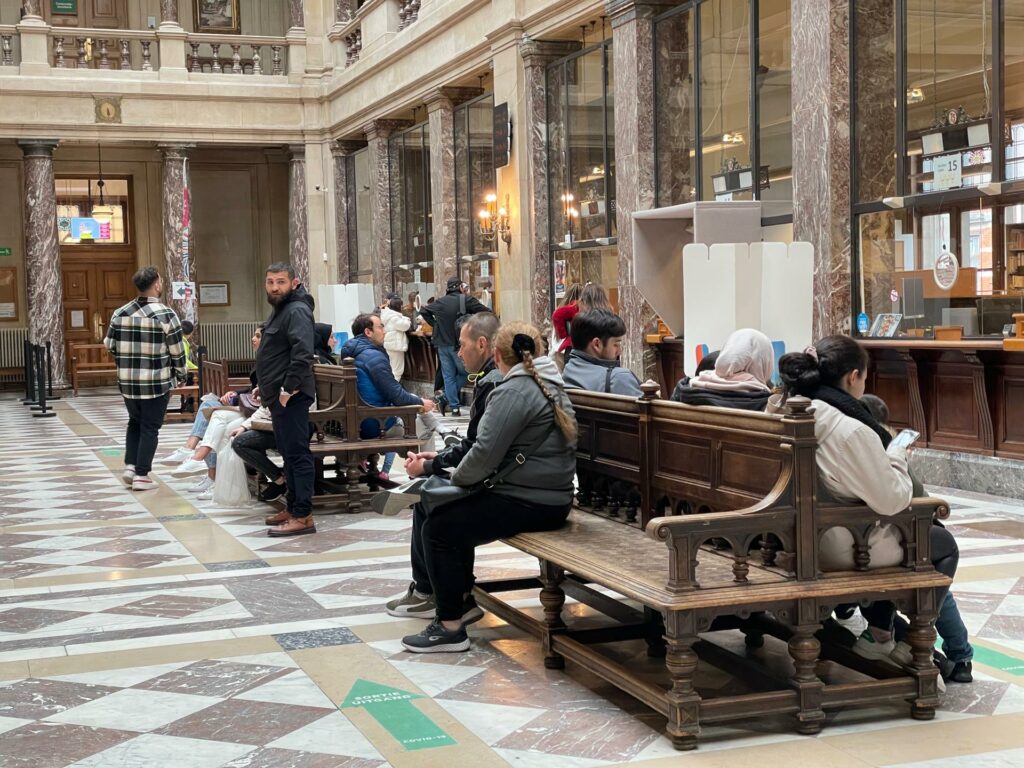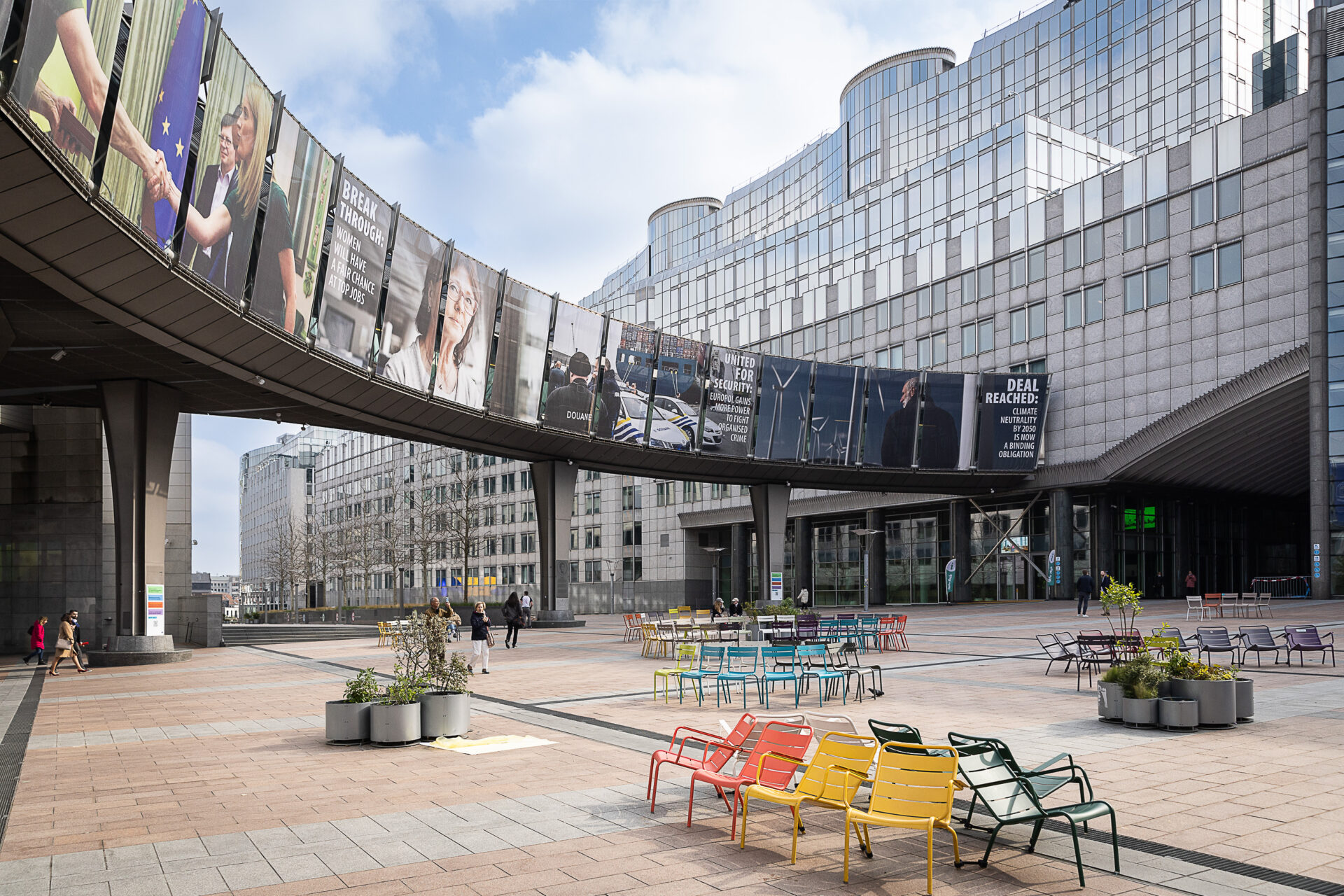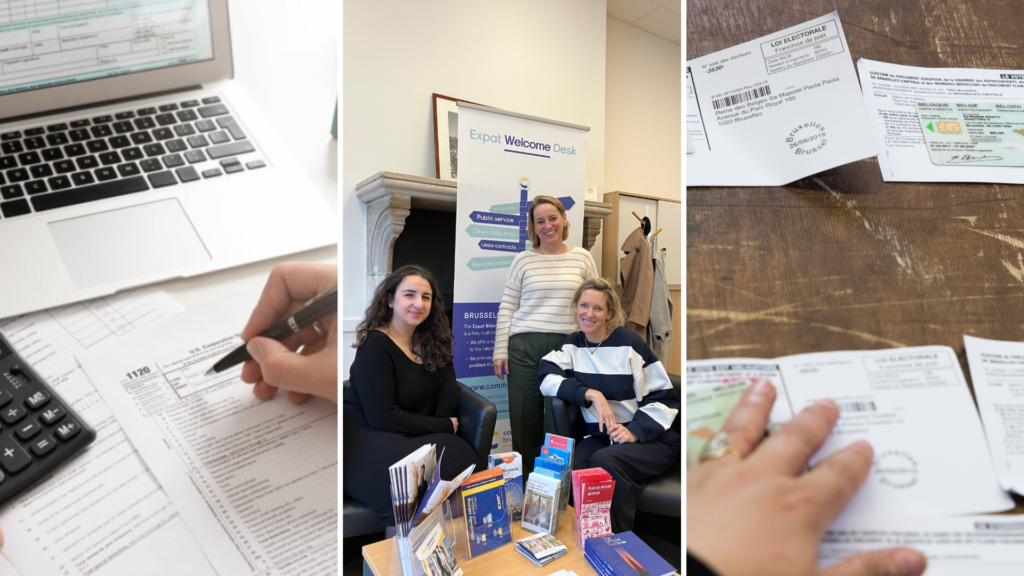Even for Belgians, administrative tasks are often a headache; for those unfamiliar with the country it can be a nightmare. Luckily, in the multi-cultural Brussels region, a free service exists to help international residents.
"I only discovered the Expat Welcome Desk when I applied to work here one year ago, but I wish I had heard about it before. It would have saved me so much stress and hassle," Isabel Rioja Laforest, one of three women running this administrative assistance service, told The Brussels Times. She is also one of the almost half a million non-Belgians living in the region.
The Expat Welcome Desk works every day to help this international community by answering their questions and helping them navigate the complex procedures that they often face. The service started 25 years ago but is not widely known, despite being so useful.
"Every year, we receive on average 2,500 questions. These are generally related to residence permits, family reunification or legislation on housing," said Amélie Bovy, the desk's senior legal adviser. "The questions change in some periods of the year. From May for example, more people ask about the taxation process; in the run-up to the local elections we get more queries about voting."
Easy contact in five languages
Housed within commissioner.brussels, which works to connect the regional government and the numerous international institutions, it isn't hard to get in touch with the Welcome Desk.
"Our services are free and people can call us directly and ask their questions," said Bovy. "You don't have to fill in a form first or go through other loopholes to speak to a person. It's a proximity that other services don’t offer."
The team gives tailored answers based on individual cases and never refuses questions. Help is offered in English, French, and Dutch, but also Spanish and Farsi, spoken by Laforest and Anaïs Jouzdani, a junior legal adviser.

The city hall of Schaerbeek. Credit: Schaerbeek
This is especially helpful as Brussels communes interact with the public in either French or Dutch but not all newcomers speak these languages. Some municipalities have decided to officially offer their services in English, however most don't, which can lead to misunderstandings when it comes to residency formalities.
"Sometimes this also leads to files containing mistakes and processes being delayed. This can also create tensions between newcomers and the commune clerks," said Bovy. The team can step in and help people understand certain aspects of their files. Bovy noted that there has been a shift online, as authorities are translating important pages into English, making information more accessible.
Most questions come from expats linked to the EU institutions, as the service is widely advertised within this context. But Bovy stressed that the Expat Welcome Desk is for all newcomers or internationals in the region. "We are open to all questions from people from all countries."
New challenges
Much has changed in the 25 years since the Expat Welcome Desk opened. For starters there's the workload: "To begin with there was no internet so it was more difficult for people to look up basic information themselves. As a result, the questions we received were quite simple," Bovy explains.
Now FAQ pages on the websites of public authorities answer many of these questions. "The questions we now receive are more complex and specific to individual cases," Bovy said.
"They require more research and consideration of the individual regarding tax, nationality and more. The responses we give cannot be easily found online because they are often tailored to one person's exact needs."

The services are well-known within the EU institutions but are accessible to all international residents. Credit: Belga / James Arthur Gekiere
A more international world also means that personal situations become more diverse, adding to the complexity of questions that the team receives. "Now, more people are going abroad for work or other reasons and families are becoming more diverse," said Jouzdani.
"For example, someone might arrive in Belgium to work here, but they also work part-time in Germany. And then they have a wife who is Italian but has a German permit card. As our lives become more international, these questions are much more complex as they also involve legislation from various countries."
Two-way street
The team doesn't just sit back and answer incoming queries; through its activity it gathers information about what people struggle with and how people's lives can be made easier. This is then passed on to the Belgian authorities.
Bovy explains how the work can uncover systematic issues that need to be addressed, for instance new legislation that does not account for the personal situation of some arrivals.
This is facilitated by the service's link to the institutional side of commissioner.brussels, which as part of the so-called "host region policy" ensures Brussels gives a warm welcome to people working in the international institutions.
"It's thanks to these questions that Brussels can understand what international residents find difficult or how certain changes impact them, and find the necessary solutions to improve their lives here," Bovy concluded. "In this way, we can be the voice for expats."

